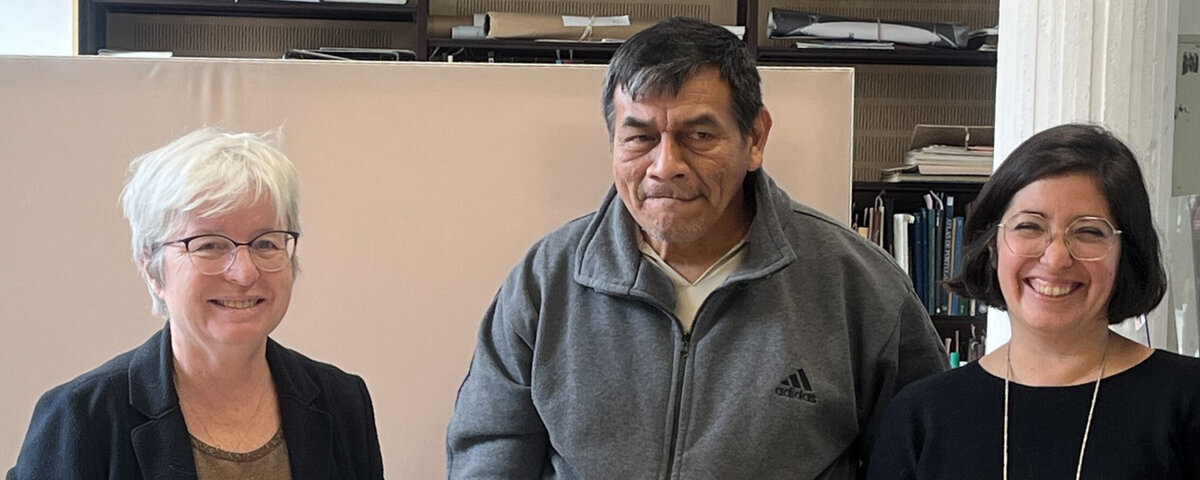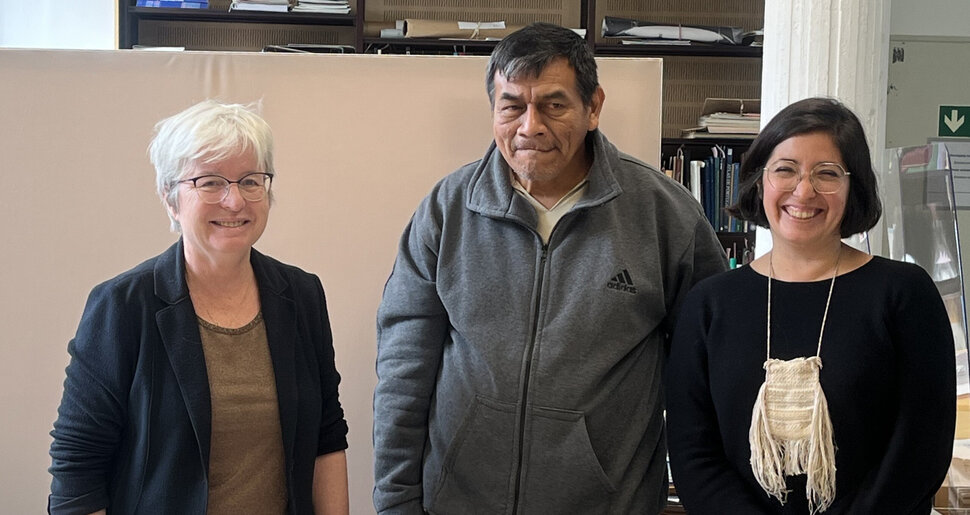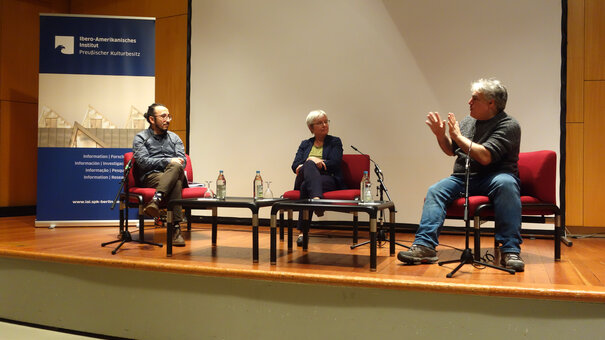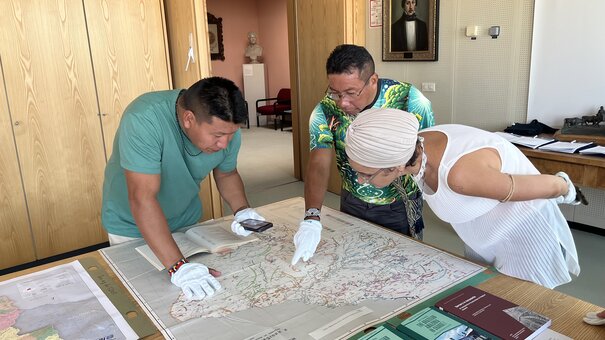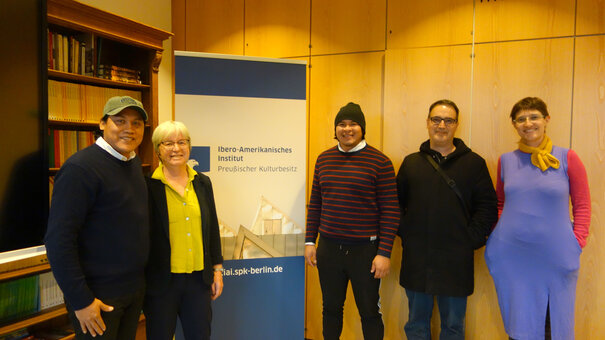On October 9, 2025, the indigenous scholar Demóstenes Toribio García and the curator and cultural scientist Andrei Fernández visited the Ibero-Amerikanisches Institut (IAI, Ibero-American Institute). Demóstenes Toribio García is a member of the Wichí indigenous group. He works as a translator and lecturer for indigenous Wichí language and culture at the Universidad Nacional de Salta, Argentina, and has been involved in the communication and valorization of the Wichí language for many years .Andrei Fernández (external link, opens in a new window) has been involved in several projects that combine social economy and contemporary indigenous art practices. She is currently a fellow of the Berliner Künstlerprogramm (Artists in Berlin Residence Program) DAAD (external link, opens in a new window) of the Deutscher Akademischer Austauschdienst (external link, opens in a new window). Together they support the artist collective Silät (external link, opens in a new window), a group of Wichí women weavers, and document their activities to promote indigenous textile arts and crafts.
At the IAI, Demóstenes Toribio García and Andrei Fernández inspected the Institute's rich holdings on the Chaco region and the culture and language of the Wichí. In addition to books, magazines and newspapers, the holdings also include photographs, maps, sound recordings and bequests with language recordings and ethnographic descriptions, such as those of the anthropologist Robert Lehmann-Nitsche (1872-1938). Many of these materials do not exist in Argentina or are not accessible there. The exchange with Demóstenes Toribio García and Andrei Fernández demonstrated the international importance and social relevance of the Institute's holdings. By preserving and making such materials accessible, the IAI contributes to the research and visibility of the cultural heritage of indigenous communities in Latin America and enables interdisciplinary and crossmedial access to cultural knowledge and memory.
